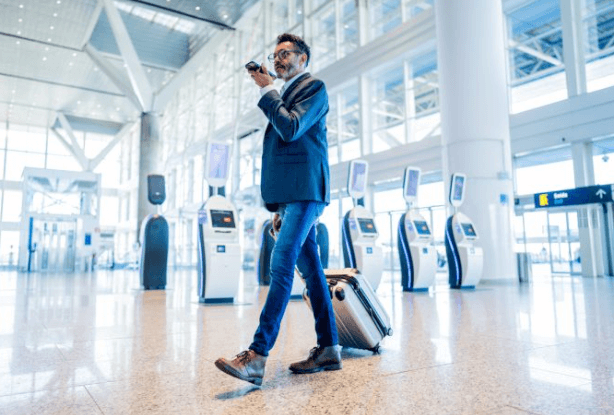The Role of Technology in Transforming Travel Experiences

Introduction
Technology has revolutionized nearly every aspect of modern life, and the travel industry is no exception. From the way we plan trips to how we experience destinations, technology has made travel more accessible, efficient, and personalized. The integration of advanced tools and platforms has reshaped the travel landscape, creating opportunities for exploration and convenience that were once unimaginable. With innovations in digital tools, transportation systems, and mobile applications, technology continues to transform travel experiences on a global scale.
Revolutionizing Travel Planning
One of the most notable ways technology has influenced travel is through the planning process. In the past, travelers relied heavily on travel agents and guidebooks to arrange their itineraries. Today, online platforms and mobile apps have put the power of planning directly into the hands of consumers. Websites like Expedia, Booking.com, and Airbnb allow travelers to compare prices, read reviews, and book accommodations and flights with just a few clicks. Similarly, apps like TripAdvisor and Google Maps provide recommendations for attractions, dining, and transportation, helping travelers make informed decisions. These tools not only save time but also empower individuals to create customized travel experiences that suit their preferences and budgets.
Mobile Technology Enhancing Convenience
Mobile technology has further enhanced convenience by providing real-time information and connectivity. Smartphones have become essential travel companions, offering everything from boarding passes and hotel check-ins to currency converters and translation services. Navigation apps like Waze and Google Maps help travelers find their way in unfamiliar cities, while ride-sharing platforms such as Uber and Lyft ensure easy access to transportation. Even in remote destinations, travelers can stay connected through mobile hotspots and local SIM cards, ensuring they have access to vital resources at all times.
Innovations in Transportation Technology
Transportation technology has played a critical role in transforming the way we move from one place to another. Innovations in aviation, such as fuel-efficient aircraft and biometric boarding systems, have made air travel faster, safer, and more sustainable. High-speed trains like Japan’s Shinkansen and Europe’s Eurostar have revolutionized rail travel, offering comfortable and efficient alternatives to flying. Autonomous vehicles are beginning to reshape urban mobility, and advances in electric transportation are reducing the environmental impact of travel. These developments not only improve the efficiency of transportation but also enhance the overall travel experience.
Immersive In-Destination Experiences
Digital technology has also elevated the in-destination experience for travelers. Augmented reality (AR) and virtual reality (VR) are offering immersive ways to explore destinations before or during a trip. For instance, AR apps can overlay historical information or interactive maps onto a traveler’s view of a landmark, enriching the experience with context and details. VR allows users to virtually visit a location, helping them decide where to travel or offering a preview of attractions. Such technologies create deeper connections with destinations, making travel more engaging and memorable.
Social Media’s Influence on Travel
The rise of social media has significantly influenced how people document and share their travel experiences. Platforms like Instagram, TikTok, and YouTube have become virtual diaries where travelers share photos, videos, and stories from their adventures. These platforms inspire others to explore new destinations and try unique experiences, fueling the desire for travel worldwide. Social media has also provided a platform for travelers to connect with local communities and discover authentic cultural experiences, creating a bridge between visitors and hosts.
Sustainability and Eco-Friendly Innovations
Sustainability has become a major focus in the travel industry, and technology is helping to address the environmental challenges associated with tourism. Eco-friendly innovations like carbon offset programs, smart energy systems in hotels, and green transportation options are empowering travelers to minimize their impact on the planet. Platforms such as Skyscanner offer tools for finding flights with lower carbon emissions, while apps like HappyCow guide users to sustainable dining options. Technology is enabling a shift toward more responsible travel practices, aligning with the growing demand for eco-conscious experiences.
Personalization Through Artificial Intelligence
Artificial intelligence (AI) and machine learning are playing a transformative role in personalizing travel experiences. AI-powered chatbots and virtual assistants provide instant support for booking inquiries, itinerary changes, and customer service, enhancing convenience for travelers. Recommendation algorithms use data from past behavior to suggest tailored activities, accommodations, and dining options. This level of personalization ensures that each traveler’s journey is unique and aligned with their preferences, creating a more satisfying experience.
Blockchain Technology in Travel
The use of blockchain technology is also making its mark on the travel industry, particularly in areas such as secure payments and identity verification. Blockchain ensures that transactions are transparent and tamper-proof, reducing the risk of fraud. It also supports the development of decentralized travel platforms, where users can book directly with service providers without intermediaries. This technology has the potential to increase trust and streamline processes across the travel ecosystem.
Advancing Accessibility in Travel
The impact of technology on travel extends to accessibility, ensuring that more people can explore the world regardless of physical or cognitive abilities. Voice-guided navigation apps, wheelchair-accessible accommodations, and sensory-friendly attractions are just a few examples of how technology is making travel more inclusive. These innovations enable individuals with disabilities to navigate new environments with confidence and ease, breaking down barriers and fostering greater participation in travel.
Enhancing Travel Safety and Security
Technology has also transformed travel safety and security. GPS tracking, emergency alert systems, and contactless payment options provide added layers of protection for travelers. Health and wellness tools, such as digital vaccine passports and telemedicine services, have become crucial in ensuring safe travel during and after the COVID-19 pandemic. These advancements enhance the peace of mind of travelers, allowing them to focus on enjoying their journeys.
The Future of Travel Technology
Looking to the future, the role of technology in travel will continue to expand, driven by advancements in artificial intelligence, robotics, and sustainable innovations. Autonomous travel experiences, where AI-powered systems manage every aspect of a journey, are on the horizon. Hyperloop technology and flying taxis may revolutionize urban and intercity transportation, further reducing travel time. Smart cities will integrate data-driven solutions to optimize the flow of tourists, ensuring a seamless and enjoyable experience for both visitors and residents.
The Role of IoT in Travel
The integration of the Internet of Things (IoT) will create even smarter travel ecosystems, where connected devices work together to enhance efficiency and convenience. Imagine a scenario where your hotel room adjusts its temperature and lighting based on your preferences as you approach, or where your luggage tracks itself and notifies you of its location. These innovations will redefine the expectations and possibilities of modern travel.
Conclusion
Technology has fundamentally transformed the travel experience, making it more accessible, efficient, and enjoyable for millions of people worldwide. From trip planning and transportation to sustainability and personalization, the role of technology in travel continues to evolve, opening up new possibilities for exploration and connection. As innovation drives the industry forward, travelers can look forward to a future where their journeys are more seamless, immersive, and tailored than ever before.




